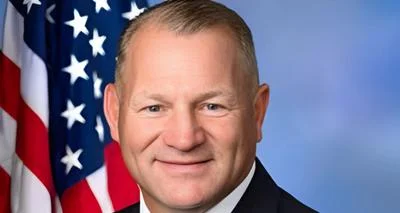WASHINGTON, DC - Ways and Means Committee Ranking Member Richard Neal (D-MA) today filed legislation that would allow Medicare beneficiaries access to critical opioid addiction treatment medication in outpatient and physician settings.
The President’s Commission on Combating Drug Addiction and the Opioid Crisis’s July 2017 interim report pointed to Medicare’s lack of coverage of methadone and other Medication Assisted Treatments (MAT) as a barrier to accessing treatment. Currently, Medicare only covers methadone treatment for opioid addiction in inpatient hospitals - methadone is not covered as an outpatient treatment for addiction in Medicare. Since hospitalization is not always necessary for opioid addiction treatment, Medicare does not pay for methadone treatment for beneficiaries who need treatment on an outpatient basis.
“While the American people wait for the President to take decisive action against the opioid epidemic, more of our friends and neighbors are falling victim to this disease," said Congressman Neal. “There are things that Congress can be doing, in tandem with any action taken by the Administration, which is why I’m pushing for increased access to lifesaving medications, like methadone, for Medicare beneficiaries in outpatient settings. The fact is, opioid use disorder is increasing among the Medicare population and it’s our responsibility to open every avenue to treatment to those who need it. No one should forego treatment because the medication they need isn’t covered by Medicare."
Opioid use disorder is a large and growing problem among Medicare beneficiaries:
* Nearly 50 percent of the Medicare population under 65, individuals with disabilities, and a third of Part D beneficiaries are prescribed opioids.
* One study showed that opioid use disorder was six times more prevalent in one carrier’s Medicare Advantage population than in their commercial population in 2010.
* Opioid use disorders are rapidly growing among Medicare beneficiaries. Medicare Part D spending on opioids far outpaces enrollment, growing 165% from 2006 to 2015.
* Within Medicare Part D, one-third of beneficiaries received an opioid prescription in 2016, more than 500,000 received high amounts of opioids, and 90,000 beneficiaries were at “serious risk" of misuse or overdose.
* Among the nearly 12 million Part D beneficiaries who were prescribed opioids, the average beneficiary received five prescriptions for commonly abused opioids throughout 2015.
Methadone treatment is an evidence-based substance use disorder treatment. Experts point to expanding coverage of outpatient medication-assisted treatment (MAT) for patients, including methadone, as a top priority in addressing the ongoing opioid crisis.









